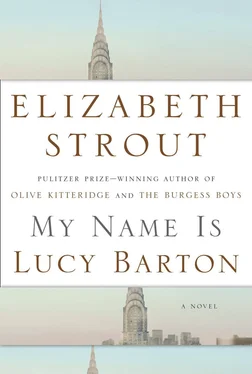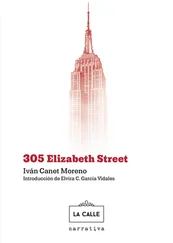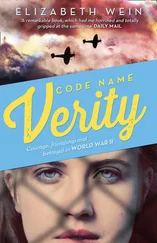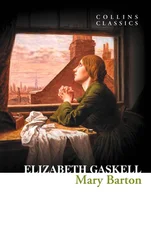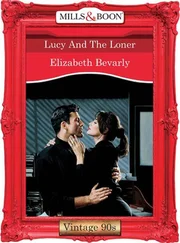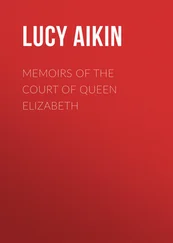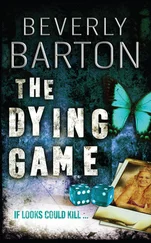“Problems.” My mother was quiet for a while. “Like most people have, or some people. Marriage problems. Your kids will be all right.”
“How do you know?”
“How do I know? I don’t know how I know. I’ve never known how I know.”
“I know,” I said.
“You rest, Lucy.”
It was still the beginning of June, and the days were very long. It was not until the lights were just starting to show in the dusk through the window that gave us the magnificent view of the city that I heard the voice at my door. “Girls,” he said.
We had been living in the West Village a few years when I attended my first Gay Pride Parade, and living in the Village made the parade a big deal. This was natural. There had been the history of Stonewall, and then the awful business of AIDS, and many people came to line the streets and be supportive and also to celebrate and mourn those who had died. I held Chrissie’s hand, and William held Becka on his hip. We stood and watched as men walked by in purple high heels and wigs and some in dresses, then there were mothers who marched by, and all the kinds of things you see at such an event in New York.
William turned to me and said, “Lucy, Jesus Christ, come on, ” because of what he saw in my face, and I shook my head and turned to go home, and he came with me and said, “Oh, Button. I remember now.”
He was the only person I had told.
—
Perhaps my brother was a freshman in high school. He may have been a year older, he may have been a year younger. But we still lived in the garage, so I would have been about ten. Because my mother took in sewing, she kept various pairs of high heels in her basket in the corner of the garage. That basket might have been like another woman’s closet. In it were also brassieres and girdles and a garter belt. I think that those were for women who needed some alteration done and had not arrived with the right underclothes; even when it was normal for all women to wear these things, my mother did not bother to wear them, unless she had a customer coming over.
Vicky came shrieking toward the schoolyard to find me that day, I don’t even know if it was a school day or why she wasn’t with me, I only remember her shriek and the gathering of people and the laughter. My father was driving our truck along the main street in town and he was screaming at my brother, who was walking down the street in a pair of big high heels I recognized from the basket, and a bra over his T-shirt, and a string of fake pearls, and his face was streaming with tears. My father drove alongside him in our truck screaming that he was a fucking faggot and the world should know. I could not believe what I saw, and I took Vicky’s hand, though I was the youngest, and I walked her all the way home. My mother was there and said that our brother had been found wearing her clothes, and it was disgusting and my father was teaching him a lesson and Vicky should stop her noise, and so I took Vicky away in the fields until it was dark and we became more afraid of the dark than of our home. I still am not sure it’s a true memory, except I do know it, I think. I mean: It is true. Ask anyone who knew us.
That day of the parade in the Village, I think — but I’m not sure — that William and I had a fight. Because I remember him saying, “Button, you just don’t get it, do you?” He meant I did not understand that I could be loved, was lovable. Very often he said that when we had a fight. He was the only man to call me “Button.” But he was not the last to say the other: You just don’t get it, do you?
—
Sarah Payne, the day she told us to go to the page without judgment, reminded us that we never knew, and never would know, what it would be like to understand another person fully. It seems a simple thought, but as I get older I see more and more that she had to tell us that. We think, always we think, What is it about someone that makes us despise that person, that makes us feel superior? I will say that that night — I remember this part more than what I just described — my father lay next to my brother in the dark and held him as though he was a baby, he rocked him on his lap and I could not tell one’s tears and murmurs from the other’s.
“Elvis,” my mother said. It was nighttime; the room was dark except for the lights of the city through the window.
“Elvis Presley?”
“Is there another Elvis you know of?” my mother asked.
“No. You said ‘Elvis.’ ” I waited. I said, “Why did you say ‘Elvis,’ Mom?”
“He was famous.”
“He was. He was so famous, he died from it.”
“He died from drugs, Lucy.”
“But that would be the loneliness thing, Mom. From being so famous. Think about it: He couldn’t go anywhere.”
For a long time my mother said nothing. I had the feeling she was really thinking about this. She said, “I liked his early stuff. Your father thought he was the Devil himself, the foolish things he wore in the end, but if you just heard his voice, Lucy—”
“Mom. I’ve heard his voice. I didn’t know you knew anything about Elvis. Mom, when did you listen to Elvis?”
Again there was a long silence, and then my mother said, “Eh — he was just a Tupelo boy. A poor boy from Tupelo, Mississippi, who loved his mama. He appeals to cheap people. That’s who likes him, cheapies.” She waited, and then she said, her voice for the first time, really, becoming the voice from my childhood, “Your father was right. He’s just a big old piece of trash.”
Trash .
“He’s a dead piece of trash,” I said.
“Well, sure. Drugs.”
I said, finally, “We were trash. That’s exactly what we were.”
In the voice from my childhood, my mother said, “Lucy Damn-dog Barton. I didn’t fly across the country to have you tell me that we are trash. My ancestors and your father’s ancestors, we were some of the first people in this country, Lucy Barton. I did not fly across the country to have you tell me that we’re trash. They were good decent people. They came ashore at Provincetown, Massachusetts, and they were fishermen and they were settlers . We settled this country, and the good brave ones later moved to the Midwest, and that’s who we are, that’s who you are. And don’t you ever forget it.”
It took me a few moments before I said, “I won’t.” And then I said, “No, I’m sorry, Mom. I am.”
She was silent. I felt I could feel her fury, and I sort of felt, too, that her having said this would keep me in the hospital longer; I mean, I felt it in my body. I wanted to say, Go home . Go home and tell people how we weren’t trash, tell people how your ancestors came here and murdered all the Indians, Mom! Go home and tell them all.
Maybe I didn’t want to tell her that. Maybe that’s just what I think now as I write this.
A poor boy from Tupelo who loved his mama. A poor girl from Amgash who loved her mama too.
I have used the word “trash,” as my mother did that day in the hospital as she spoke of Elvis Presley. I used it with a good friend I made not long after I left the hospital — she is the best woman friend I have made in my life — and she told me, after I met her, after my mother came to see me in the hospital, that she and her mother would fight and they hit each other, and I said to her: “That’s so trashy.”
And she, my friend, said, “Well, we were trash.”
In my memory her voice was defensive and angry; why would it not have been? I’ve never told her how I felt, that it was so wrong of me to have said it. My friend is older than I am, she knows more than I do, and perhaps she knows — and she was raised a Congregationalist too — that we won’t speak of it. Perhaps she forgot. I don’t think she has.
Читать дальше
